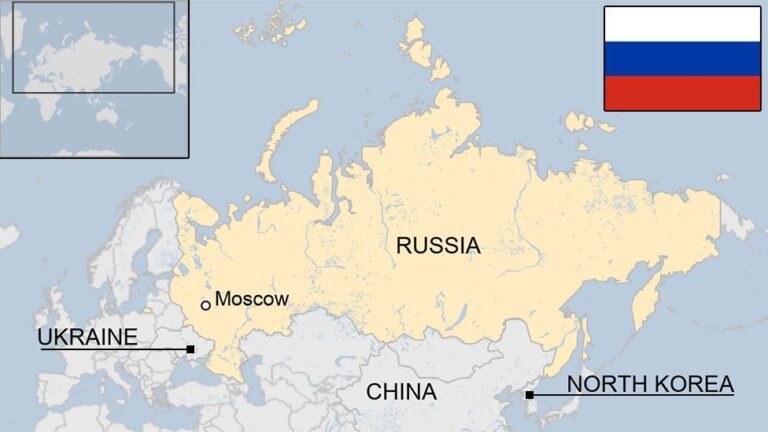Russia finds itself navigating a precarious landscape in the Middle East as escalating tensions between Israel and Iran threaten to destabilize long-standing regional alliances. According to recent reports from The Washington Post, Moscow is increasingly concerned that the ongoing conflict could drive away one of its key allies in the region, complicating its strategic interests amid a volatile geopolitical environment. This development underscores the intricate web of relationships and rivalries shaping the future of the Middle East.
Russia’s Strategic Concerns Over Growing Israel-Iran Tensions
Russia’s geopolitical calculus in the Middle East is increasingly strained as escalating tensions between Israel and Iran threaten to destabilize a fragile balance of power. Moscow, which has long relied on strategic partnerships with Tehran and other regional actors to project influence, now faces the risk of losing critical leverage. The deepening conflict sidelines Russia’s efforts to act as a mediator and could alienate Gulf states that are watching the Israel-Iran rivalry unfold with growing concern. Analysts note that Russia’s ambitions to maintain a foothold in Syria and broader Mideast dynamics are at risk unless it navigates this regional friction with greater diplomatic finesse.
Key factors driving Russia’s concern include:
- Potential disruption of energy and military cooperation with Iran
- Increased U.S. and Israeli pressure undermining Moscow’s partnerships
- Risk of Gulf states pivoting away from Russia toward Western alliances
- Possible entanglement in unpredictable conflict spillovers
| Aspect | Russia’s Strategic Interest | Potential Threat |
|---|---|---|
| Military Presence | Maintaining bases in Syria | Conflict-driven instability |
| Energy Trade | Access to pipelines and markets | Sanctions and supply disruptions |
| Political Alliances | Influence in regional diplomacy | Alliance fragmentation |
Implications for Moscow’s Influence Among Middle Eastern Allies
Moscow’s strategic calculus in the Middle East is facing renewed challenges as tensions between Israel and Iran escalate. Russia has long positioned itself as a pivotal power broker in the region, leveraging its relationships with various state and non-state actors to maintain influence. However, the growing conflict risks alienating some of its key allies, notably those caught between Moscow’s diplomatic interests and regional pressures. Countries like Syria and Lebanon, already fragile in their allegiances, may be compelled to reassess their ties to Russia if it cannot effectively balance its stance on the Israel-Iran confrontation.
The potential erosion of Moscow’s regional sway could have several direct consequences:
- Shift in alliances: Strategic partners could pivot towards other powers, such as China or regional actors like Turkey.
- Reduced negotiating leverage: Russia’s ability to mediate conflicts or broker ceasefires may diminish as trust frays.
- Impact on military presence: Bases and operations in key locations might face operational and political constraints.
| Middle Eastern Ally | Current Russian Influence | Potential Risk |
|---|---|---|
| Syria | High | Moderate |
| Lebanon | Medium | High |
| Iraq | Medium | Moderate |
Policy Recommendations for Russia to Navigate Shifting Regional Dynamics
To maintain its strategic foothold in the Middle East amid rising tensions between Israel and Iran, Russia should prioritize a nuanced diplomatic approach that balances its ties with Tehran against its regional ambitions. This includes strengthening backchannel communications with key Middle Eastern actors to avoid misinterpretations that could deepen distrust. Furthermore, Moscow must enhance its role as a broker of de-escalation by engaging with both Israeli and Iranian officials discreetly, aiming to prevent the conflict from dragging Russia’s regional partners into direct confrontation. Developing multifaceted diplomatic channels will be crucial for Russia to protect its interests without alienating vital allies.
Equally important is Russia’s need to diversify its alliances beyond traditional partners to mitigate the risk of isolation. Strategic investments in economic, military, and cultural cooperation with countries like Egypt, the United Arab Emirates, and Turkey could provide alternative avenues of influence. The following table highlights key areas of focus in adjusting Russia’s Middle East policy:
| Policy Focus | Recommended Actions |
|---|---|
| Diplomatic Engagement | Revitalize backchannel talks, mediate discreet trilateral dialogue |
| Alliance Diversification | Expand cooperation with Egypt, UAE, and Turkey |
| Economic Initiatives | Invest in infrastructure, energy, and tech partnerships |
| Military Posture | Maintain balanced Certainly! Here’s a continuation and completion of the last row in the table along with the full paragraph: |
| Military Posture | Maintain balanced military presence to deter escalation without provoking direct conflict |




